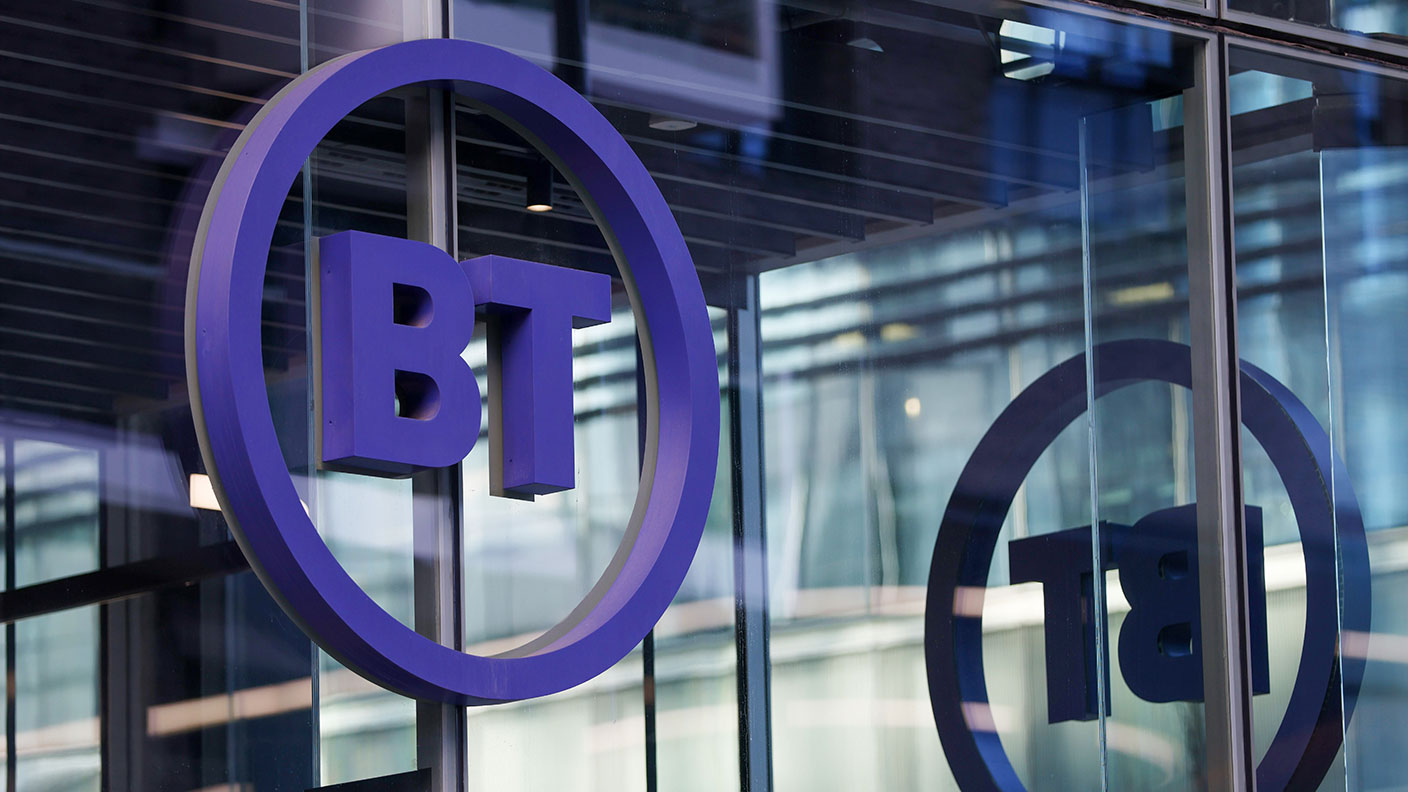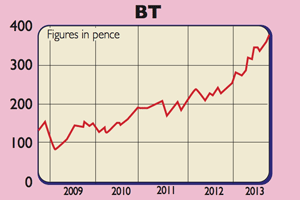Sell your telecoms shares – this merger madness is bound to end in misery
A lot of money will be spent in the telecoms tie-up frenzy – but much of it will be wasted, says Matthew Lynn.

Get the latest financial news, insights and expert analysis from our award-winning MoneyWeek team, to help you understand what really matters when it comes to your finances.
You are now subscribed
Your newsletter sign-up was successful
Want to add more newsletters?

Twice daily
MoneyWeek
Get the latest financial news, insights and expert analysis from our award-winning MoneyWeek team, to help you understand what really matters when it comes to your finances.

Four times a week
Look After My Bills
Sign up to our free money-saving newsletter, filled with the latest news and expert advice to help you find the best tips and deals for managing your bills. Start saving today!
Dealmakers in the City must have felt Christmas had come early this week. On Monday British Telecom (BT) revealed it had opened negotiations to buy mobile operator EE for £12.5bn.
Bankers are probably already licking their lips at the prospect of a round of telecoms mega-mergers. Vodafone is reportedly eyeing Virgin Media or Sky, or O2 might buy TalkTalk, or TalkTalk might buy Three. There are more possible permutations than there are plot twists in Downton Abbey.
Yet the last round of telecoms deals destroyed shareholder wealth on an epic scale and this one will be no different. The best thing to do is to dump the shares of any company gripped by this madness, as soon as a deal is announced.
MoneyWeek
Subscribe to MoneyWeek today and get your first six magazine issues absolutely FREE

Sign up to Money Morning
Don't miss the latest investment and personal finances news, market analysis, plus money-saving tips with our free twice-daily newsletter
Don't miss the latest investment and personal finances news, market analysis, plus money-saving tips with our free twice-daily newsletter
The next round of big deals
Now it is determined to get back into the mobile business, which it exited ignominiously more than a decade ago, having run up huge debts. It will buy EE (itself formed out of a huge deal between Orange and T-Mobile), creating a full range of telecoms services for its customers.
That could well spark another round of deals as rivals try to keep up. Vodafone, flush with cash from selling its American business, might well snap up Sky or Virgin Media, or Sky might try and crash the EE deal, or else buy O2, which BT rejected while Virgin Media, if it doesn't get bought by Sky or someone else, will buy Talk Talk; or well, you get the idea.
For City dealmakers, this is all no doubt very exciting. It's a long time since big companies have worked themselves up into a merger frenzy, and plenty of merger and acquisition (M&A) departments must be wondering how long they will survive when there is so little work around.
They will make lots of money if bids are launched, and so will the PR advisers, lawyers and management consultants. For shareholders, however, they are likely to be a disaster.
The fashionable theory behind these deals is 'quad-play' the idea that customers want to buy fixed-line, mobile, broadband and TV all from the same company. Chief executives are getting very excited about the potential synergies between different parts of the market.
They argue that they need to be able to offer all four services to win new customers, and to stop existing ones abandoning them for a rival with a more complete package.
Quad-play is overhyped madness
And BT has had some success with its sports channels although mainly because it basically gives them away. But the rest of the hype about quad-play is nonsense.
Who really cares about getting a phone line, mobile, broadband and TV from the same company? We don't generally buy banking and insurance from the same firm, or computers and light bulbs so why should we care about getting fixed and mobile lines from the same provider?
Sure, we might, depending on the deal. But more often customers are suspicious of buying too much from one company, and rightly so. We tend to split our business, even among very similar products. Lots of people have a credit card and a current account from two different banks, for example.
As a general rule, we are slightly suspicious of giving one company too much control overour lives, and prefer to split our business between several different players.We sense that in the medium term it will keep them on their toes, and we'll get a better deal and we are probably right.
Sell the predators
But it won't happen. In many cases, they will simply drift off to other providers. Mobile numbers are all portable, and the industry is fiercely competitive. It may even be in structural decline few of us actually make many calls on our smart-phones.
Likewise, pay-TV customers may drift away from a telecoms conglomerate as online-streaming services, such as Netflix, grow in importance.
A lot of money will be spent in the next year, just as in 1999 and 2000 duringthe last telecoms deal-making frenzy.But most will be wasted, just as it was last time. If you own shares in a company that gets bought out, that's great.
But if you own one of the companies making an acquisition, get out as fast as you can. It will be making a costly mistake you don't want to end up paying for it.
Get the latest financial news, insights and expert analysis from our award-winning MoneyWeek team, to help you understand what really matters when it comes to your finances.

Matthew Lynn is a columnist for Bloomberg and writes weekly commentary syndicated in papers such as the Daily Telegraph, Die Welt, the Sydney Morning Herald, the South China Morning Post and the Miami Herald. He is also an associate editor of Spectator Business, and a regular contributor to The Spectator. Before that, he worked for the business section of the Sunday Times for ten years.
-
 How a ‘great view’ from your home can boost its value by 35%
How a ‘great view’ from your home can boost its value by 35%A house that comes with a picturesque backdrop could add tens of thousands of pounds to its asking price – but how does each region compare?
-
 What is a care fees annuity and how much does it cost?
What is a care fees annuity and how much does it cost?How we will be cared for in our later years – and how much we are willing to pay for it – are conversations best had as early as possible. One option to cover the cost is a care fees annuity. We look at the pros and cons.
-
 BT is making progress and the dividend is back – but is it time to buy yet?
BT is making progress and the dividend is back – but is it time to buy yet?Analysis Investors in telecoms giant BT have seen dismal returns over the last 15 years. But there are signs that it is starting to turn things around, says Rupert Hargreaves. So should you buy BT shares?
-
 Football’s £5bn bonanza
Football’s £5bn bonanzaFeatures Competition between Sky and BT for rights to screen the footie has handed a £5bn windfall to the English Premier League. Can that really be a good deal? Simon Wilson reports.
-
A shake-up for the sleepy telecoms sector
Features The shape of the telecoms sector is changing, as BT's ambitious plans show.
-
Vodafone takes fight to BT
News Telecoms giant Vodafone has vowed to take on BT in the broadband and television market.
-
Company in the news: BT
Features BT is a company in rude health, but support for the share is waning, says Phil Oakley.
-
 Why higher interest rates could be good news for BT
Why higher interest rates could be good news for BTFeatures A rise in interest rates could deliver a nice boost to BT, one of Britain’s largest companies, says Phil Oakley. Here’s why.
-
BT’s football coup
Features BT has made an aggressive move into the pay-TV sector, snatching lucrative football rights from Sky and ITV. But has it paid too high a price? Simon Wilson investigates.
-
 Companies in the news: BT and Merlin Entertainments
Companies in the news: BT and Merlin EntertainmentsFeatures BT has staked its future on Premier League football, and the owners of Alton Towers are floating the company. Is it time to buy? Phil Oakley reports.